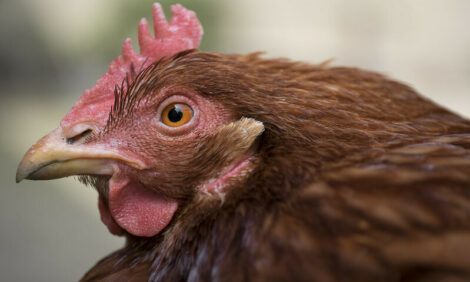



New Report Reveals Alarming UK Self-Sufficiency Figures
UK - A new report published by the National Farmers Union (NFU) has revealed disturbing new figures relating to the UK’s self-sufficiency in food. It states that at current rates, just 53 per cent of the nation’s food needs will be produced from home farms in the next 25 years, with potential for serious implications for the British economy, food security and employment.With the population expected to boom over the coming decades, there will be around 13 million extra mouths in the UK by the time the country’s self-sufficiency in home-grown food is predicted to hit dwindling new lows. Currently, the figure stands at 60 per cent – following a 30-year downward spiral. The NFU says action is needed now, and from successive governments, to reverse this current negative trend.
The report, revealed on the opening day of the NFU Conference in Birmingham, comes at a time when the public is becoming increasingly aware of the importance of British food and farming. New YouGov figures show that 85 per cent of the population want to see supermarkets selling more food from British farms – an increase from 79 per cent in 2014.
NFU President Meurig Raymond said: “Today’s report highlights the causes of the decline in self-sufficiency, including shifting and conflicting direction on European and UK farm policy; declining investment in publicly funded research and development; poorly crafted regulation, and weak bargaining power within the food chain. Our report focuses very clearly on what needs to be done to reverse this trend.
“The stark choice for the next government is whether to trust the nation’s food security to volatile world markets or to Back British Farming and reverse the worrying trend in food production. I know what I want to happen. I want to see a robust plan for increasing the productive potential of farming, stimulating investment and ensuring that the drive to increase British food production is at the heart of every government department.”
NFU Deputy President Minette Batters said: “The important thing to remember about self-sufficiency is that it is a yardstick for measuring how competitive we are and how much we produce. It doesn’t mean limiting or reducing export; it means capitalising on what we are already good at and being able to provide Great British Food to shoppers and food procurers throughout Britain. We know 85 per cent of the public have said they want to see more British food on the shelves.”
“In a volatile world, it's really important for a small island nation to prioritise food security. British food should be at the heart of government. Education, health and food and farming should be intrinsically linked. We want to thank all shoppers, from school children to pensioners, for supporting British food and farming. Get friends and family to make their voices heard by casting a vote for British food. To get involved, I’d ask them to visit www.votebritishfood.com.”
Guy Smith, NFU Vice President, said: “Currently, farming grows most of the raw ingredients for Britain’s food and drink industry – worth £97 billion – which provides jobs for 3.5million people across the country. With that in mind, the prospect of the UK becoming less than 50 per cent self-sufficient should ring alarm bells across all political parties. Our burgeoning trade deficit in food and drink is not just worrying in terms of food security; it also has important implications for jobs and general economic health.”









